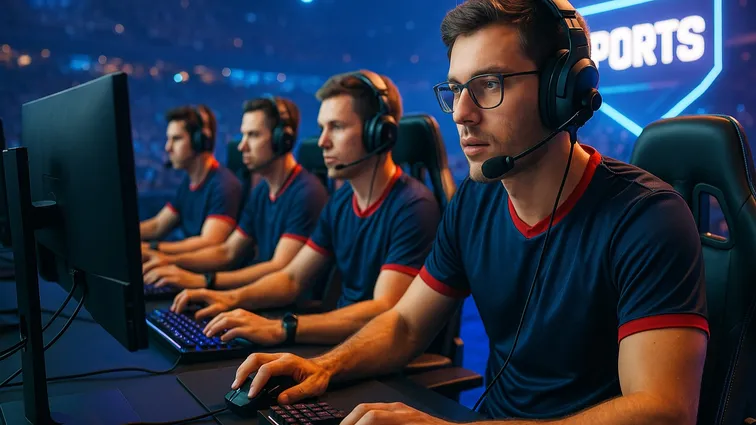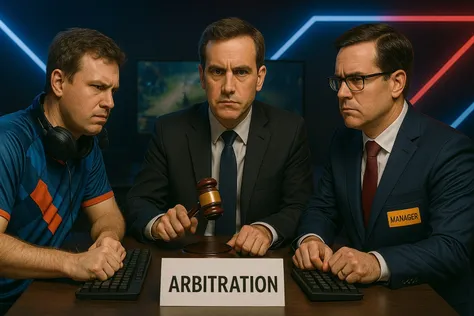Esports is a dynamically developing industry attracting an increasing number of players, enthusiasts, and investors. However, with the rise in professionalisation, the need for quality contracts that ensure fair play both on and off the server is also growing. In this article, we will discuss four contractual clauses that teams and players should be aware of when signing contracts.
Note: The article is based on our legal team’s experience from esports agencies and on the legal practice of Havel & Partners.
Clause 1: Penalisation
One of the common issues in esports contracts is the inappropriate setting of penalty amounts. Although most players in Czechia are paid salaries comparable to those for part-time jobs, initial versions of esports player contracts commonly include contractual penalties amounting to hundreds of thousands of crowns.
Why is this happening? Esports contracts are often drafted based on templates from traditional sports environments. Authors of the drafts typically use an already existing ice-hockey or football contract, merely changing the names of the parties, the amount of remuneration and the subject of the contract. However, provisions on contractual penalties often remain unchanged.
For a typical esports player in the Czech environment, a contractual penalty amounting to hundreds of thousands of CZK constitutes an amount that most esports players will never earn in their entire gaming career. Therefore, the penalty will discourage the player from signing the contract with the team.
From the team’s perspective, such a clause may seem advantageous at first glance. However, in the event of a dispute, the court could still moderate it upon the player’s motion, which could then lead to a much lower satisfaction for the team or even denial of legal costs.
Therefore, it is in the interest of both parties to set the contractual penalty at a reasonable level given the circumstances and realities of the esports environment.
Clause 2: Duration of Contract, Severance Pay
Czech esports contracts typically have a duration of one or two years. These contracts can include an “exit clause” allowing players to terminate the contract early upon the payment of an agreed amount.
Negotiating the amount, or the mere existence of an exit clause is crucial in many esports contracts. In principle, the team wants the player to actively play for them for as long as possible, or to profit from the player’s transfer, i.e. the team will want to get an adequate compensation for the player’s advantage in the form of the exit clause.
On the other hand, the player will strive to include the smallest possible compensation for the exit clause, in case of a more lucrative offer from a third party or in case of dissatisfaction with the team’s management/performance.
The amount of the exit clause is thus usually the subject of intensive negotiations, which must always be based on the actual state of cooperation.
Clause 3: Reimbursement of Costs
Another area where problems may arise is the reimbursement of costs incurred in relation to tournament participation, travel, or hotel stays during tournaments (not) stipulated in the contract.
For younger or lower-paid players, these costs can significantly exceed their monthly contract fees. It is therefore important that the contract clearly lays down whether these costs should be paid out of their own pocket or by the team.
The contract should also precisely state who pays for the cost of the mandatory equipment. It is not uncommon to see a contractual provision laying down not only what jersey a player is required to wear during a match, but also what hardware is part of their mandatory equipment (especially where the use of specific hardware is stipulated in a sponsorship agreement between the team and a third party).
The team usually covers all the player’s mandatory equipment costs. However, in lower divisions or in teams with lower financial capacity (typically those teams that compete in tournaments without the participation of a sponsoring organisation), financial contributions from players can be envisaged.
Clause 4: Paid Activities
Players are typically obliged, in line with their contracts, not only to participate in individual matches and competitions but also to actively and regularly practice with the team, attend various events and media engagements.
If players are paid an hourly fee for their playing activities, it is essential to clarify whether they also receive it for training matches or only for official matches in league competitions and tournaments. The amount of time a player spends on their practices is usually several times higher than the time spent in official matches (and in the case of hourly fee, the fee received for practices significantly increases the overall remuneration).
In the case of hourly rates and player’s participation in media events, it is important to lay down in the contract whether the player is entitled to remuneration also for attending these events (generally, in the Czech esports environment, this is not typically the case). In the case of hourly rates and player’s participation in an offline tournament, the contract should indicate whether the player is entitled to remuneration for the entire period of their participation in the event or only for the time actively engaged in gaming activity (i.e. when playing on the server).
Are you about to sign an esports contract and want to make sure you know the legal dos and don’ts? Get in touch with us to schedule a meeting. You can find our contact information here.







